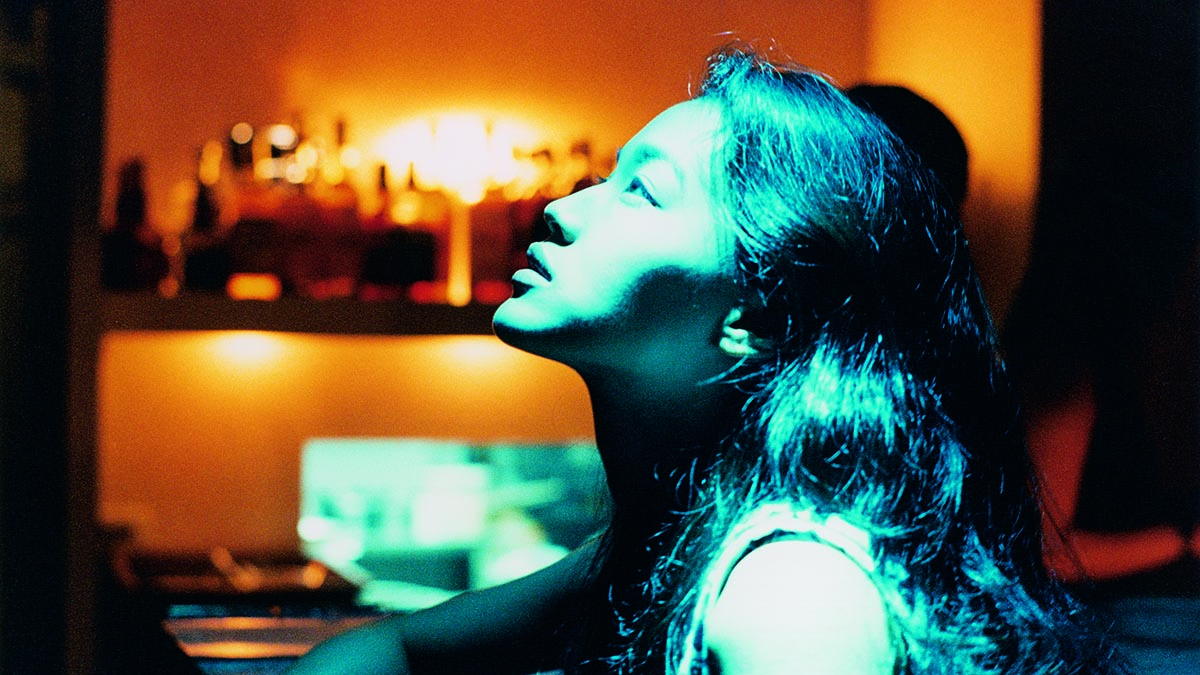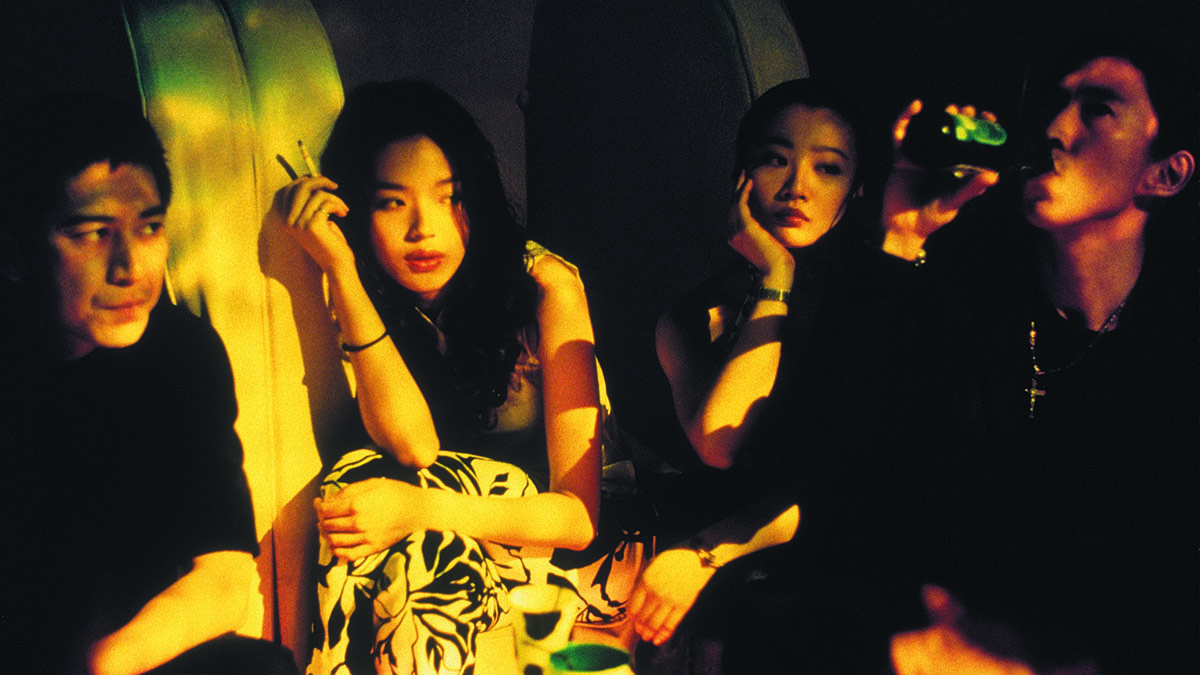An Eternal Present: Hou Hsiao-hsien’s Millennium Mambo

Critics Campus 2023 participant Christy Tan discusses Hou Hsiao-hsien’s 2001 feature, with particular focus on its subordination of narrative to the evocation of a certain place and time in its protagonist’s life.
If time moves more in a spiral than it does a line, history is destined to repeat itself. No film captures this recurrent movement more tenderly and languorously than Hou Hsiao-hsien’s Millennium Mambo (2001). Watching the film’s iconic opening scene, it is impossible to not be mesmerised by the listless glamour of Vicky (Shu Qi) as she strides through the night on a narrow and vacant bridge in Taipei. Beneath an infinite row of fluorescent lights, Vicky’s dark hair gently shimmers in slow motion, bouncing to the techno music of the film’s trancelike score. Snatches of cigarette smoke dissipate as quickly as they emerge, orchestrated by her exquisite hand. These ephemeral moments suggest an ever-receding eternity, in which time and memory conspire in a slippery dance.
Although her carefree smile is ecstatic and untroubled, we soon learn that this sense of unboundedness – coinciding with the new millennium – can be just as suffocating in its rootlessness. Millennium Mambo is not driven by narrative concerns, choosing instead to luxuriate and linger in its restless textures and lonely, melancholic moods. We have little assurance that the sequence of the film is chronological; time feels stuck, like the opening song that plays on an intermittent loop. The track is Lim Giong’s ‘A Pure Person’ – but what does it mean to be pure? To shed ourselves of our past? To be a clean, blank slate? In repeating our past, can we create something new each time?
As she turns back to face the camera, Vicky is staring from a distant future into a lapsed decade, never fully present in either. We do not get to meet this future Vicky, only privy to her ethereal voiceovers, fluttering on a haunting frequency and narrating events about herself in third person. When the camera suddenly arrives at the end of the tunnel, we see the back of her luminous head, floating down the stairs in small, slow bounds. Vicky appears to be running towards (or away from?) something out of frame. As she confesses in her voiceover, “Again and again. As if under a spell or hypnotised. She couldn’t escape. She always came back.”

Millennium Mambo
Vicky’s ‘on-again, off-again’ relationship with the coercive and controlling Hao-hao (Tuan Chun-hao) is both a plot device and existential metaphor. Their perfunctory passion and predictable fights, in which Hao-hao accuses her of cheating on him, feel unbearably drawn-out and repetitive. Verbal sparring does not surpass the usual allegations and retaliations, with the same recycled insecurities and conflicts. This makes being a witness to these scenes – partially obscured by a clattering curtain of iridescent beads, jangling violently when Vicky finally leaves – all the more painful: how excruciatingly glacial and interminable it feels to watch a woman trapped in an abusive relationship. As Vicky hits Hao-hao with a pillow, her frustration is not only at him but also at herself, for returning to him, again and again.
Soon, Vicky finds new employment as a hostess at a nightclub. It is here that she meets Jack (Jack Kao). Their relationship is ambiguous, not overtly sexual or romantic, but he takes care of her when Hao-hao cuts up her clothes in a jealous rage. After Vicky meets Jack, the electrifying ‘A Pure Person’ replays as Vicky’s euphoric energy reappears. But instead of evoking the monotonous repetition of her rows with Hao-hao, the song this time offers a feeling of respite, finally.
It is disappointing that Vicky is only afforded a semblance of agency in relation to the various men in her life, but Millennium Mambo doesn’t aim to be a character study. Vicky personifies the ubiquitous aimlessness and malaise that pervades the film. The men she tethers herself to are representative not merely of different temperaments but of different temporalities. While Hao-hao relegates Vicky to an unremitting past, Jack signals not exactly a future, but perhaps a way out.
Through this recollection of her past, we are offered glimpses into Vicky’s eventual emancipation. In a handheld, slow-motion montage, Jack drives as Vicky is perched atop the moving car’s sunroof. As the wind courses through her hair and billowing blouse, her arms are open to limitless possibility. Against hazy lights, she gleams with rapturous abandon, blurring into an incoherent haze of colour. Slowly, we hear again the hopeful, electronic thrums of her distant future, echoing against a recurring past she is no longer beholden to. The past and the future overlap into an eternal present – one that Vicky fearlessly glides through.